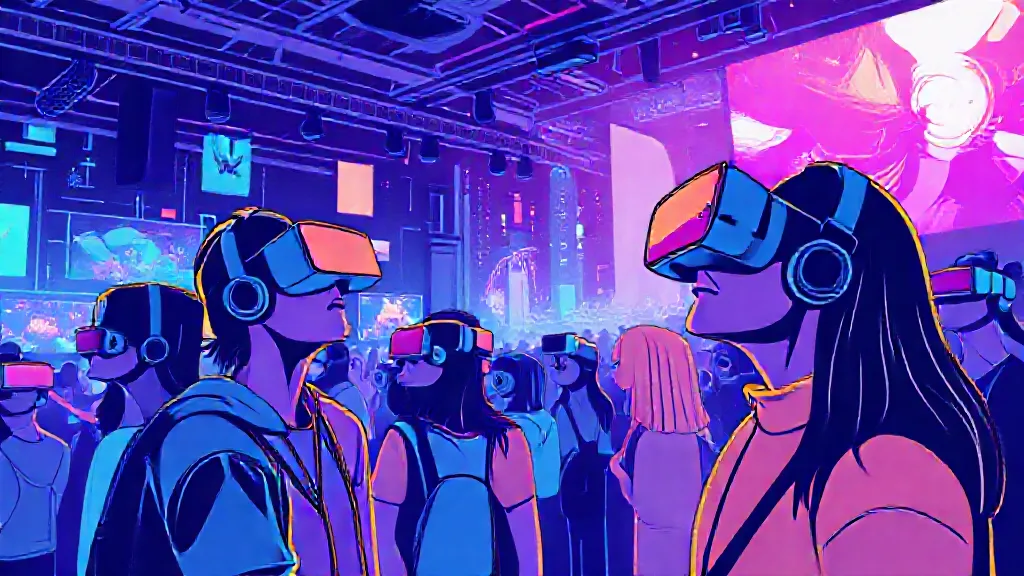Virtual Reality (VR) has emerged as a groundbreaking technology, reshaping the landscape of entertainment in unprecedented ways. From immersive gaming experiences to virtual concerts and interactive storytelling, VR is redefining how audiences engage with content. This article delves into the various dimensions where VR is influencing entertainment, highlighting its applications, benefits, challenges, and future prospects.
The Evolution of Virtual Reality in Entertainment
The origins of virtual reality can be traced back to the 1960s with the development of the Sensorama, an early multi-sensory experience. However, it wasn't until the 1990s that VR began to capture the public's imagination, thanks to advancements in computer graphics and interactive technology. Fast forward to the 21st century, and VR has evolved significantly, driven by the proliferation of affordable headsets like the Oculus Rift and HTC Vive.
This evolution has opened new avenues for entertainment, making experiences more immersive and interactive than ever before.
Immersive Gaming: A New Frontier
One of the most prominent areas where VR is reshaping entertainment is the gaming industry. Traditional gaming has always provided a level of escapism, but VR takes this to another level by placing players directly into the game world.
Titles like Beat Saber and Half-Life: Alyx have demonstrated how VR can create a sense of presence that traditional gaming cannot match. Players can physically move, interact, and experience the game environment in a way that feels real, leading to heightened engagement and emotional investment.
Virtual Concerts and Live Events
The COVID-19 pandemic accelerated the adoption of virtual events, including concerts and festivals.
Artists like Travis Scott and Lil Nas X have hosted virtual concerts in platforms such as Fortnite and Roblox, attracting millions of viewers. These events showcase how VR can create a shared experience among fans, allowing them to interact with the performance and each other in a virtual space. This shift not only provides new revenue streams for artists but also expands access to live performances for fans who may not be able to attend in person.
Interactive Storytelling: A New Narrative Dimension
VR is also revolutionizing storytelling by allowing users to become active participants in narratives. Experiences like The Invisible Hours and The Walking Dead: Saints & Sinners enable users to explore stories from different perspectives, making choices that influence the outcome. This level of interactivity fosters a deeper emotional connection to the narrative, as users are no longer passive observers but engaged participants in the unfolding drama.
The potential for storytelling in VR is vast, with opportunities for personalized and branching narratives that adapt to individual user choices.
Challenges and Limitations of VR in Entertainment
Despite its potential, the integration of VR into entertainment is not without challenges. Technical limitations, such as the need for high-quality graphics and responsive controls, can hinder the user experience.
Additionally, issues like motion sickness and the physical space required for VR setups can deter some users. The cost of VR equipment also remains a barrier for widespread adoption. Addressing these challenges is crucial for the continued growth of VR in entertainment, requiring collaboration between developers, hardware manufacturers, and content creators.
The Future of VR in Entertainment
Looking ahead, the future of VR in entertainment appears promising. As technology continues to advance, we can expect more realistic graphics, improved user interfaces, and greater accessibility. Innovations like augmented reality (AR) and mixed reality (MR) are likely to merge with VR, creating hybrid experiences that further enhance engagement.
Moreover, the rise of social VR platforms, where users can interact in virtual spaces, may redefine how we consume entertainment, creating new forms of social interaction and community building.
Conclusion: Embracing the VR Revolution
In conclusion, virtual reality is undeniably reshaping the entertainment industry, offering innovative ways to engage audiences and create immersive experiences. From gaming to virtual concerts and interactive storytelling, VR opens up a world of possibilities that challenge traditional forms of entertainment.
As the technology matures and becomes more accessible, it will be exciting to see how creators leverage VR to push the boundaries of what entertainment can be. Embracing this revolution will not only enhance user experiences but also pave the way for new creative expressions in the digital age.
